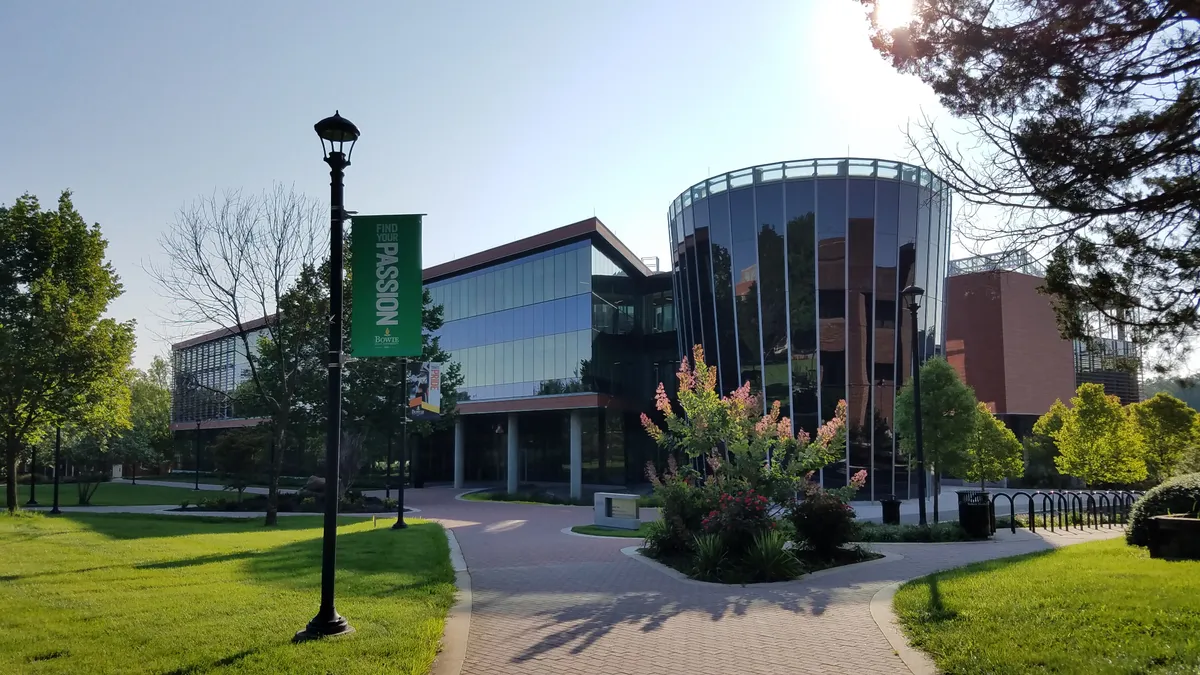UPDATE: May 12, 2021: A federal judge signed off on a settlement agreement between Maryland and its four HBCUs, ending a years-long lawsuit, according to a press release shared with Higher Ed Dive. The institutions will receive $577 million from the state, $22 million of which will go toward attorney fees.
Dive Brief:
-
Maryland Gov. Larry Hogan, a Republican, signed legislation Wednesday giving the state's four HBCUs an additional $577 million spread out over a decade, effectively ending a 15-year lawsuit.
-
Advocates for the state's HBCUs sued in 2006 saying the state had underfunded these institutions for years while allowing predominantly White schools to develop duplicative programs that drew away their students.
-
A federal judge wrote in a 2013 opinion that the duplication has a "palpable effect on student choice," but the case remained unresolved for years as the state and HBCU supporters struggled to agree during mediation.
Dive Insight:
The law requires Maryland to begin distributing the funds to HBCUs starting in 2023. They are meant to supplement rather than replace these schools' state allocations, according to a bill analysis.
Maryland's HBCUs — the University of Maryland Eastern Shore and Coppin State, Bowie State and Morgan State universities — will be able to use the funds for the following:
-
Scholarships and financial aid services.
-
Faculty recruitment and development.
-
Improving and expanding existing academic programs.
-
Developing new academic programs, including those online.
-
Academic support.
-
Marketing.
The money will only be distributed if the lawsuit's parties settle the case by June. However, an attorney representing the HBCU coalition said he didn't expect any trouble settling once the measure becomes law, The Associated Press reported.
The University System of Maryland will help the HBCUs develop online programs through its academic innovation center, according to the bill analysis. The system will also tap UMUC Ventures — a nonprofit supporting the University of Maryland Global Campus, one of the nation's largest online institutions — for assistance with program development, back-office technology and instructional design.
Hogan vetoed a similar bill last year, citing pandemic-related budget challenges. Maryland HBCU advocates previously rejected two separate proposals from Hogan to give HBCUs $100 million and $200 million.
Donors and the federal government have made massive investments into HBCUs over the past year that could spark transformational change at these institutions. Billionaire philanthropist and author MacKenzie Scott donated more than $500 million to HBCUs, while federal coronavirus relief legislation allocated several billions of dollars to these schools and canceled $1.3 billion of their debt.
Still, this funding doesn't make up for systemic racism or bridge the divide between the endowments of HBCUs and many predominantly White institutions. HBCU leaders say ongoing support will be needed to make up for decades of underfunding.















